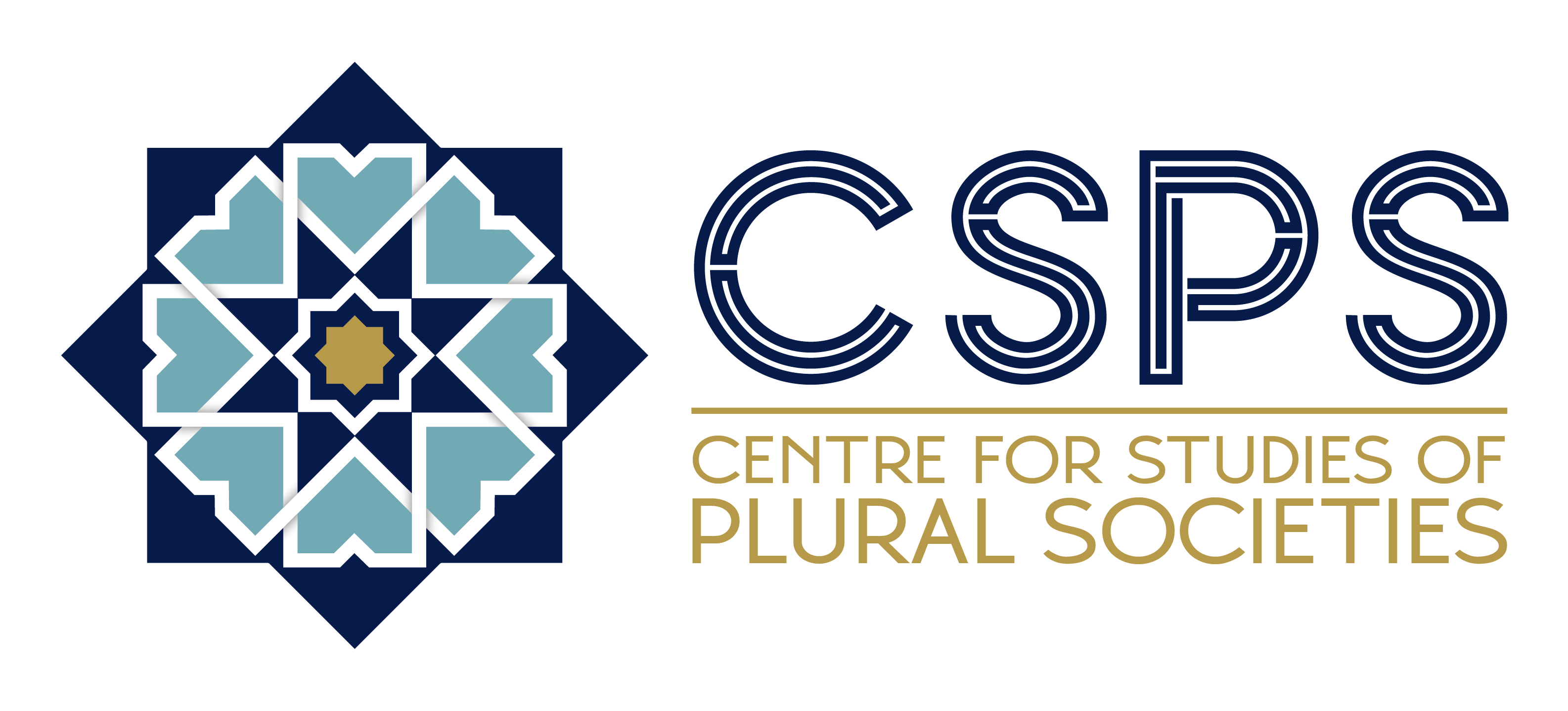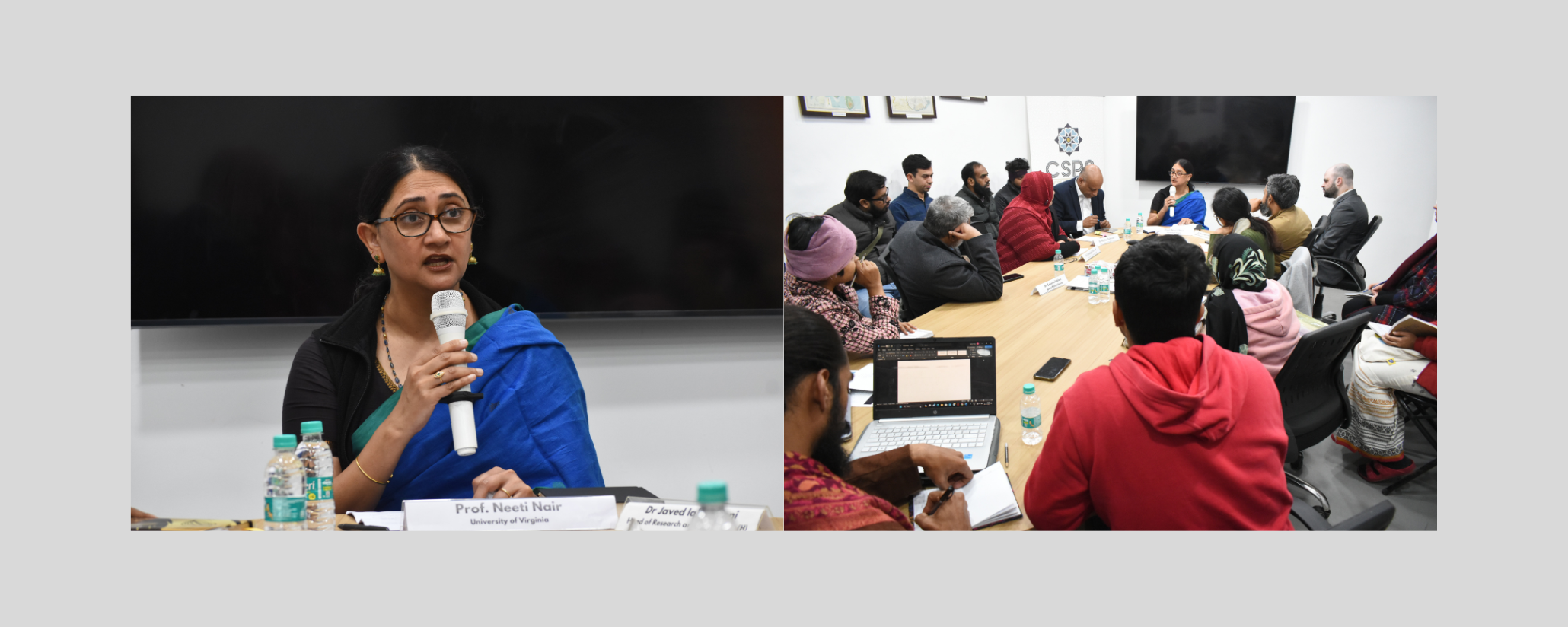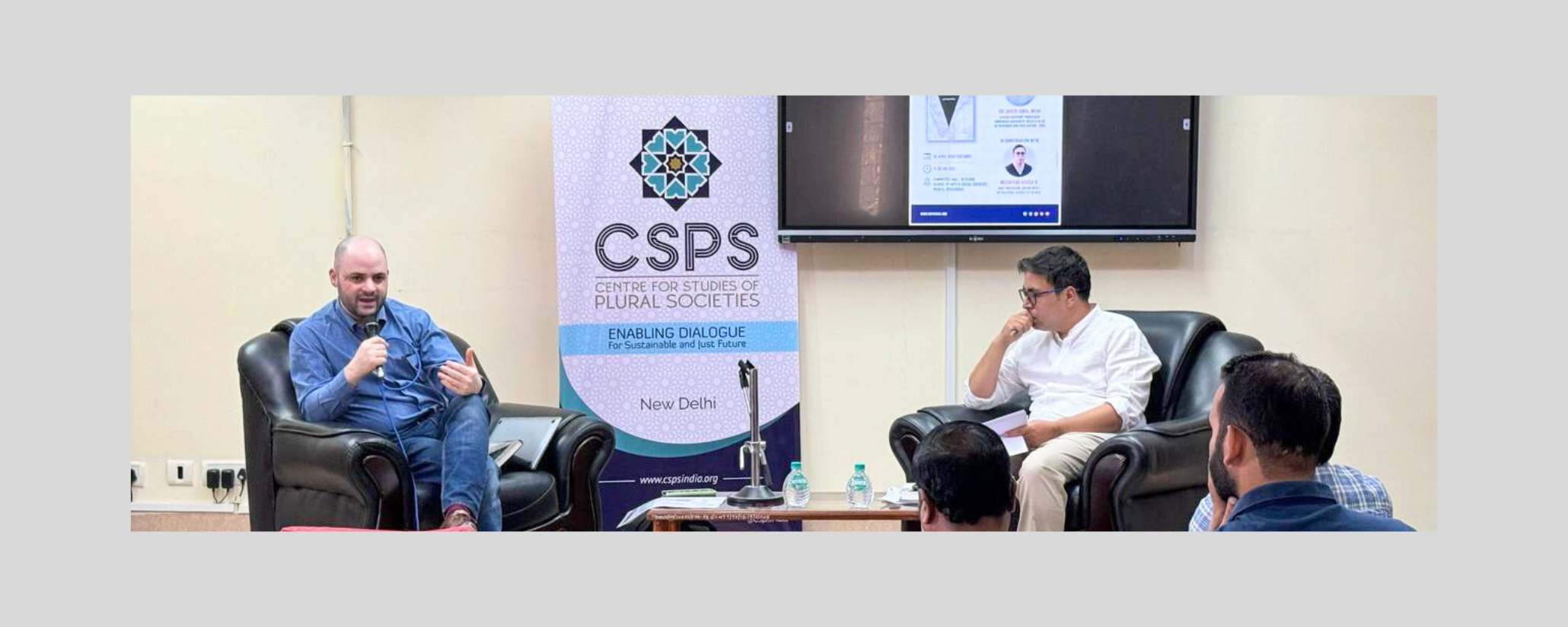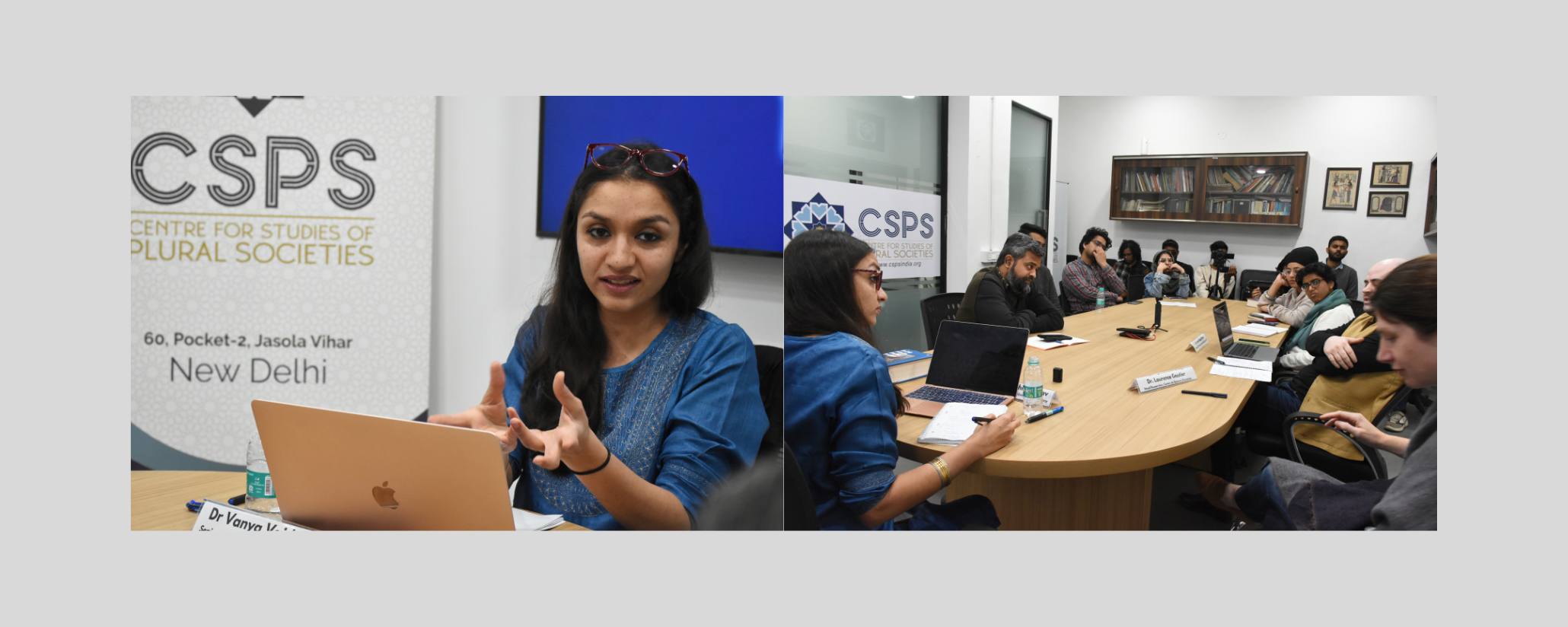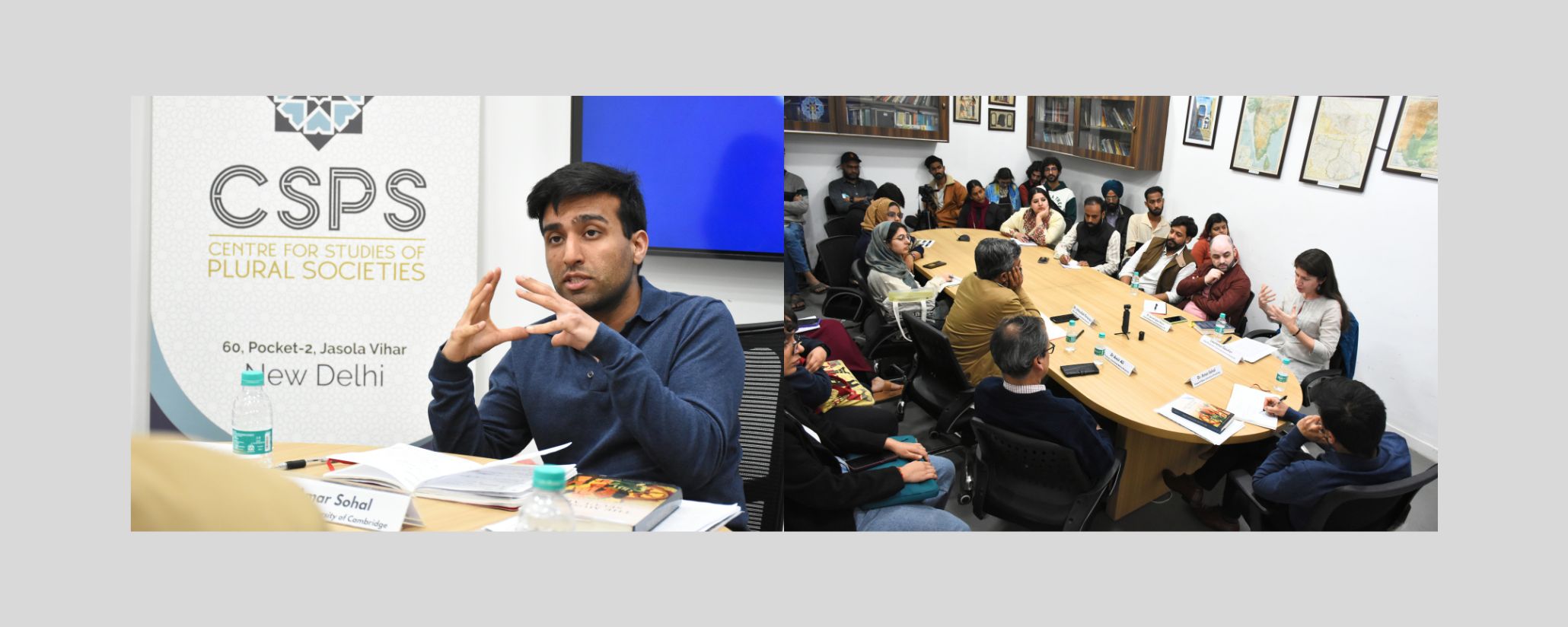Centre for Studies of Plural Societies (CSPS) organised a book discussion on“Hurt Sentiments: Secularism and Belonging in South Asia” authored by Prof. Neeti Nair. Prof Nair, a historian and professor at the University of Virginia, specialises in South Asian history.The session was chaired by Dr. Mujibur Rehman, Assistant Professor at the Centre for the Study of Social Exclusion and Inclusive Policy, Jamia Millia Islamia, New Delhi.
Prof Neeti Nair commenced her discussion by stating the limited scholarly work contextualising secularism without reflecting the hurt sentiment within South Asia. In the wake of increasing myth of religious laws, and rapidly becoming mainstream across religious minorities. She assessed all the landmark debates since partition, over the constitutional status of religious minorities, and meaning of the secularism and Islam that have evolved to meet the demands of the populist electoral majorities. She explored around 100 volumes of constituent assemblies along the deeper conversation across the censorship and stretched all together across with the history of India, Pakistan, and Bangladesh. In 1947 India-Pakistan partition, it was widely expected that the India would be secular, where different religion and communities could live in harmony, while Pakistan would be the Islamic state and the homeland for Muslims. Thus, the question of religious minorities in the Islamic state became different from the secular state, promising homeland for Muslims in Pakistan.
She discusses the work of censored writing vary of charges of anti-Hindu sentiments. She explained the political and territorial boundaries by bringing together the cases of censorship in India, Pakistan, and Bangladesh, each involving claims of “hurt sentiments” on the part of individuals and religious communities. In one of the instances where Nehru throughout 1950-60 was keen to ban Ramayana. Thus, resulting in increasing act of vigilantism. Such sentiments have been evolved over the period of seventy-five years resulting in the demand of populist electoral majorities. After 75 years, India is on the precipice of declaring itself as a Hindu state, while Pakistan has drawer even narrow interpretation of the meaning of Islamic republic. Further, Bangladesh has been fluctuating between professing secularism and Islam. The books have chronological discussed the parliamentarian from all political parties as an ideal and representation. Throughout the discussion, the book shed light on the significant debate of secularism, and how the hurt sentiments have been ceded into the religious identity that undermined 70 years of scholarship. Further, the weaponization of the hurt sentiments has enabled the majoritarian to rise.
The discussant Dr Irfanullah focused on how sentiments and communities are central to the relation in contextualisation of secularism. However, the question is whose sentiments are getting hurt, and who sentiments are to let go, especially in the case of minority. Thus, there is a complex relationship of secularism with democracy. Further, what does it mean to be in secular belonging, especially in the context of the parameters of the belonging. He raised an argument, where intellectual merits in all religions have been equal. Moreover, historical needs have to be traced and explored.
The moderator, Dr Azeemah Saleem, Asst. Professor at JK Laksmipat University delivered a vote of thanks and gratitude to the speakers and distinguished participants. Dr. Irfanullah Farooqi, Assistant Professor, South Asian University, Dr. Javed Iqbal Wani (Senior Assistant Professor at Ambedkar University Delhi; Head of Research and Publication at CSPS), and Dr Zakariya Siddiqui, Associate Professor of Economics at Jamia Millia Islamia, along with doctoral scholars and students from various universities.
